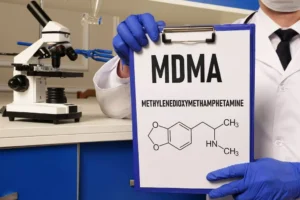Alcohol use disorder Diagnosis and treatment

This suggests that the reinforcing value of alcohol may be enhanced as a result of experiencing repeated opportunities to respond for access to alcohol in the context of withdrawal. Schematic illustration of how problem drinking can lead to the development of dependence, repeated withdrawal experiences, and enhanced vulnerability to relapse. Alcohol dependence is characterized by fundamental changes in the brain’s reward and stress systems that manifest as withdrawal symptoms when alcohol consumption is stopped or substantially reduced. These changes also are purported to fuel motivation to reengage in excessive drinking behavior. Repeated bouts of heavy drinking interspersed with attempts at abstinence (i.e., withdrawal) may result in sensitization of withdrawal symptoms, especially symptoms that contribute to a negative emotional state. This, in turn, can lead to enhanced vulnerability to relapse as well as favor perpetuation of excessive drinking.
3. MATCHING EFFECTS/SEVERITY
Cirrhosis mortality was lower in Asian and African–Caribbean women but higher in Irish women. However, because there were few total deaths in ethnic minority groups this may lead to large errors in estimating prevalence in this population. Studies in England have tended to find over-representation of Indian-, Scottish- and Irish-born people and under-representation in those of African–Caribbean or Pakistani origin (Harrison & Luck, 1997).

Being at risk of becoming dependent on alcohol
The brain is a delicate and intricate organ that must maintain a careful balance of chemicals, called neurotransmitters, for a person to function properly. Alcohol intoxication can disrupt this fine balance, disturbing the brain’s natural equilibrium, and long-term, chronic use forces a person’s brain to adapt in an effort to compensate for the effects of alcohol. Your health care provider or mental health provider will ask additional questions based on your responses, symptoms and needs. Preparing and anticipating questions will help you make the most of your appointment time. If your pattern of drinking results in repeated significant distress and problems functioning in your daily life, you likely have alcohol use disorder.
The Holistic Approach to Treating Alcohol Addiction
While drinking and alcohol-use disorders are relatively rare under the age of 10 years, the prevalence increases steeply from the teens to peak in the early 20s. The UK has the highest rate of underage drinking in Western Europe (Hibell et al., 2009). This is of particular concern because alcohol presents particularly serious consequences in young people due to a higher level of vulnerability to the adverse effects of alcohol. Heavy drinking in adolescence can affect brain development and has a higher risk of organ damage in the developing body (Brown et al., 2008). The brain’s endogenous opioid system is also affected by alcohol (Oswald & Wand, 2004). Alcohol stimulates endogenous opioids, which are thought to be related to the pleasurable, reinforcing effects of alcohol.
- This question should be answered using a randomised controlled design that reports short-and medium-term outcomes (including cost-effectiveness outcomes) of at least 18 months’ duration.
- This is of particular concern when you’re taking certain medications that also depress the brain’s function.
- People with AUD and co-occurring psychiatric disorders bring unique clinical challenges tied to the severity of each disorder, the recency and severity of alcohol use, and the patient’s pressing psychosocial stressors.
- When people use the term psychological addiction, they’re often talking about psychological dependence, not addiction.
- The estimated costs in the workplace amount to some £6.4 billion through lost productivity, absenteeism, alcohol-related sickness and premature deaths (Prime Minister’s Strategy Unit, 2003).
9.3. Studies considered for review

The intervention is limited in nature–usually no more than three to five sessions, some of which may be delivered by telephone. Self-administered interventions are designed to modify drinking behaviour and make use of a range of books, web pages, CD-ROMs or a self-help manual that is based on an evidence-based intervention and designed specifically for the purpose. The patient has an initial assessment followed by four treatment sessions and two follow-up telephone calls. No significant difference was observed between treatment conditions in attrition either post-treatment or at all follow-up points. It must be noted that the comparison between social network and environment-based therapies versus control was based on a single study. Coping and social skills training is a variety of CBT that is based on social learning theory of addiction and the relationship between drinking behaviour and life problems (Kadden et al., 1992; Marlatt & Gordon, 1985).
- Furthermore, 10 trials on multisystemic therapy that met the inclusion criteria for the review were analysed.
- Harmful alcohol use and dependence are relatively uncommon before the age of 15 years, but increase steeply to reach a peak in the early 20s, this being the period when alcohol use-disorders are most likely to begin.
- Be willing to apologize for past behaviors and demonstrate your commitment to positive change.
- Between 20 and 30% of medical admissions, and one third of primary care attendances, are alcohol related (Coulton et al., 2006; Kouimtsidis et al., 2003; Royal College of Physicians, 2001).
- Furthermore, no difference between groups was observed in reducing the number of participants who had lapsed or reducing heavy drinking at all follow-up points.

There are many organized programs that provide the support of peers, usually through frequent meetings. Alcoholics Anonymous is one example; it offers a structured 12-step path toward recovery with a community of support from those who have dealt with similar challenges. For the European Union, the US and Canada, social costs of alcohol were estimated to be around €270 billion (2003 prices; Anderson and Baumberg, 2005), US$185 billion (1998 prices; WHO, 2004), and CA$14.6 billion (2002 prices; Rehm et al., 2006), respectively. physiological dependence on alcohol In terms of productivity, alcohol contributes to absenteeism, accidents in the workplace and decline in work performance. Up to 17 million working days are lost annually in the UK due to alcohol-related absences and 58,000 working years are lost annually due to premature deaths related to alcohol (Leontaridi, 2003). Alcohol misuse can also lead to job loss and over 38,000 people of working age in England were claiming Incapacity Benefit with a diagnosis of ‘alcoholism’ – nearly 2% of all claimants (Deacon et al., 2007).

- However, the results of the analysis suggested that MET was cost effective compared with no further counselling after initial assessment, resulting in an ICER of AUS$3366 (£2,493) per QALY.
- Two trials relating to clinical evidence met the eligibility criteria set by the GDG, providing data on 427 participants.
- As we dive deeper, we encourage readers to approach this topic with an open heart and mind, offering hope and actionable insights for those who find themselves or their loved ones entangled in this complex web of dependence.
- Kembali is here to be your guiding light, the sanctuary of healing, and the cornerstone of support.
9.2. Clinical review protocol (cognitive behavioural therapies)
- If you’re concerned about someone who drinks too much, ask a professional experienced in alcohol treatment for advice on how to approach that person.
- For example, animal studies have indicated that elevation of corticosteroid hormone levels may enhance the propensity to drink through an interaction with the brain’s main reward circuitry (i.e., mesocorticolimbic dopamine system) (Fahlke et al. 1996; Piazza and Le Moal 1997).
- Specific studies of the role of the alliance in drug and alcohol treatment programmes have been conducted.
- The main elements of this intervention include engaging and supporting the family, identifying maladaptive family interactions, and seeking to promote new and more adaptive family interactions (see for example, Szapocznik et al., 1989).
- This chapter is concerned with structured psychological interventions used to help people who experience alcohol dependence or harmful alcohol use.